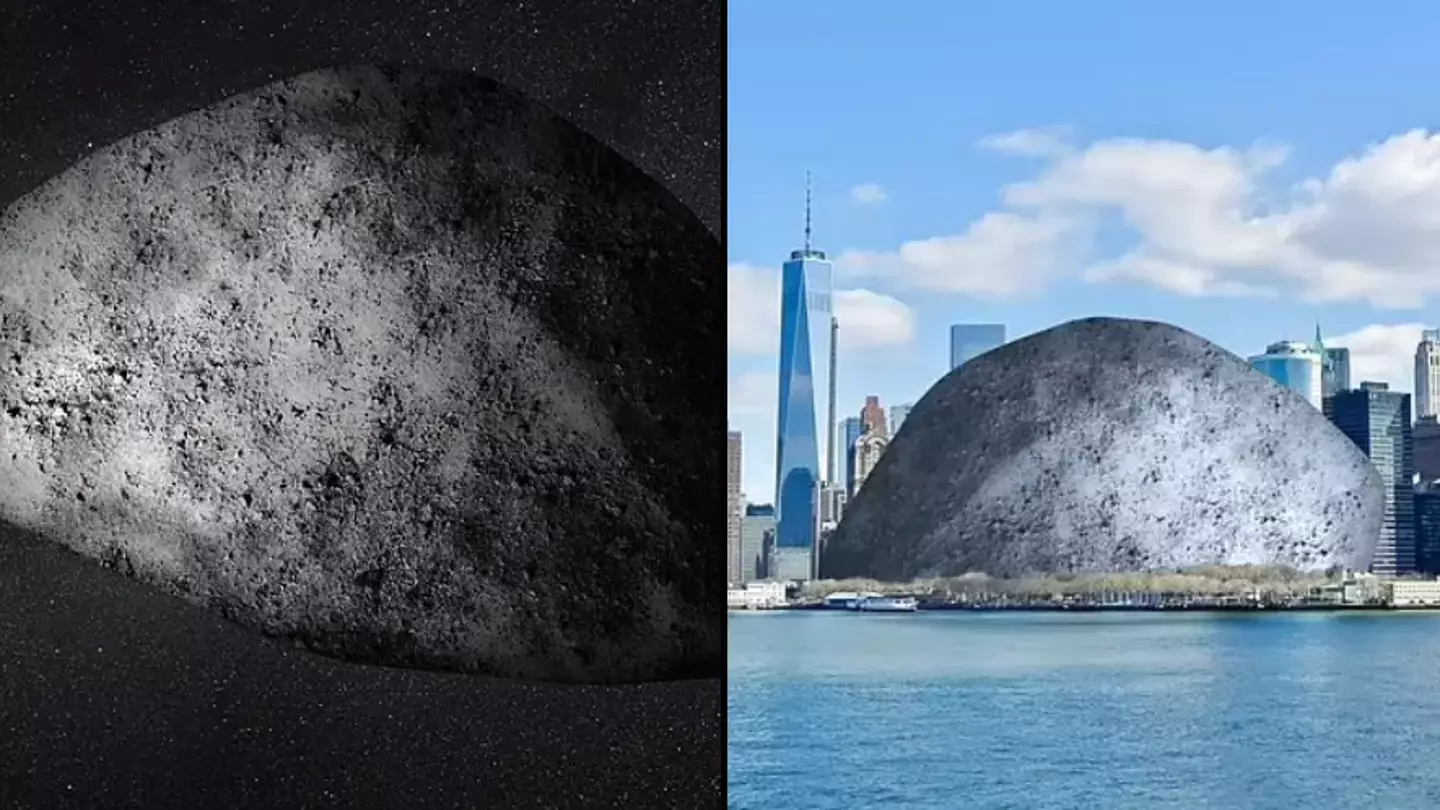
You might have heard that a honking big asteroid known as the ‘God of Chaos’ is heading our way and it’s going to get closer to Planet Earth than some satellites.
Now scientists reckon that its fly-by could cause a major reaction.
What is the ‘God of Chaos’ asteroid?
The ‘God of Chaos’ asteroid is at least 340 metres wide and is scheduled to fly closer than we would like to Earth in 2029.
The asteroid’s actual name is 99942 Apophis, and is named after the Ancient Egyptian god of chaos and destruction. Not foreboding at all.
This is where the ‘God of Chaos’ nickname comes from, though the chances of it wreaking destruction upon our planet are incredibly low.
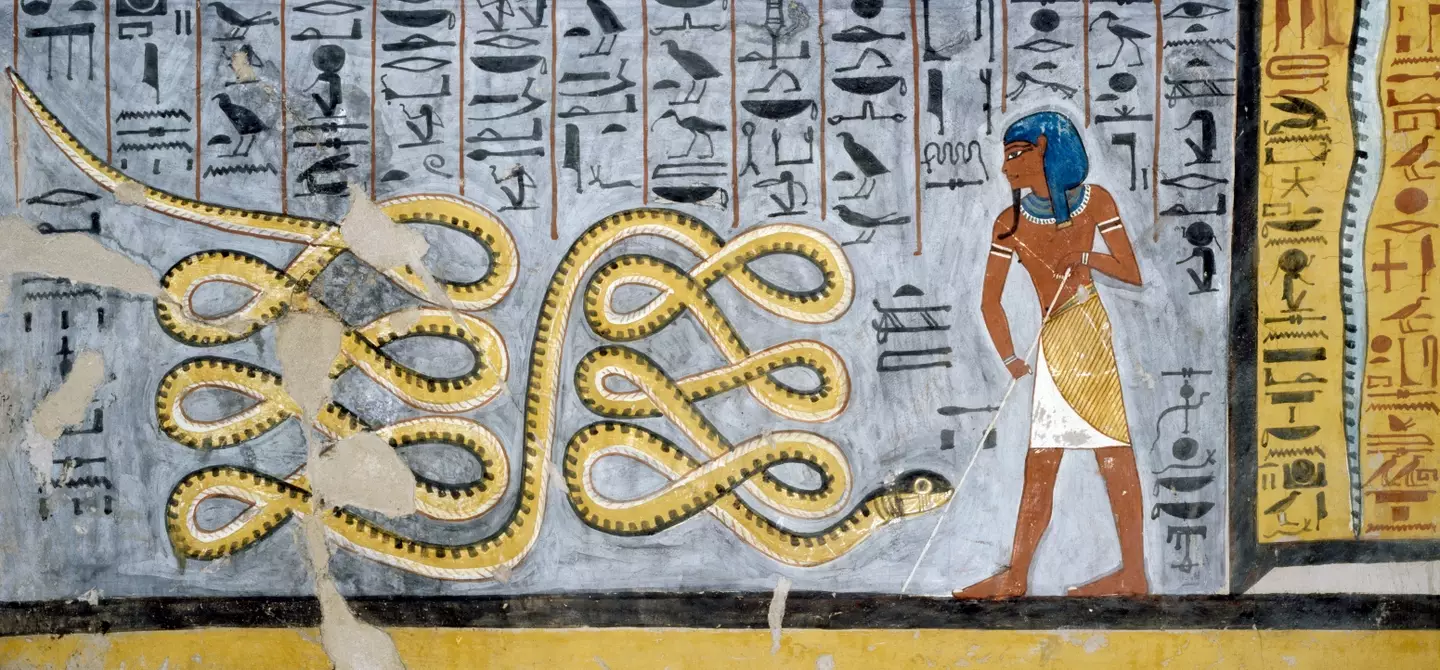
The asteroid is named for an Ancient Egyptian god of chaos and destruction, depicted here as a big snake getting thoroughly tonked by Atum. (DeAgostini/Getty Images)
On its current trajectory, the asteroid is not expected to hit Earth and scientists have calculated that the chances of the ‘God of Chaos’ hitting something else on the way here and being redirected into our path is pretty low.
About one in two billion to be precise, so it’s probably not going to happen and we’re unlikely to end up as unwilling participants in a real-life rendition of Don’t Look Up.
When will the ‘God of Chaos’ asteroid fly past Earth?
Experts believe it’ll pass harmlessly by our planet on 13 April, 2029, coming within about 32,000km (which is actually closer than some satellites) of the little rock where we all live but not striking us.
The opportunity for this asteroid to mess with our day is minimal, but the ‘God of Chaos’ may come to regret flying so close to our planet due to the changes it would go through.
What will happen when the ‘God of Chaos’ asteroid flies past Earth?
Asteroids are normally hit on the regular by little meteoroids, in something called ‘space weathering’, but some of the rocks which fly past planets don’t have rough surfaces.
Asteroid scientist Ronald-Louis Ballouz of the Johns Hopkins University Applied Physics Laboratory wanted to find out why, and he told Live Science that many of the chunks of rock which fly past planets are rather smooth in shape.
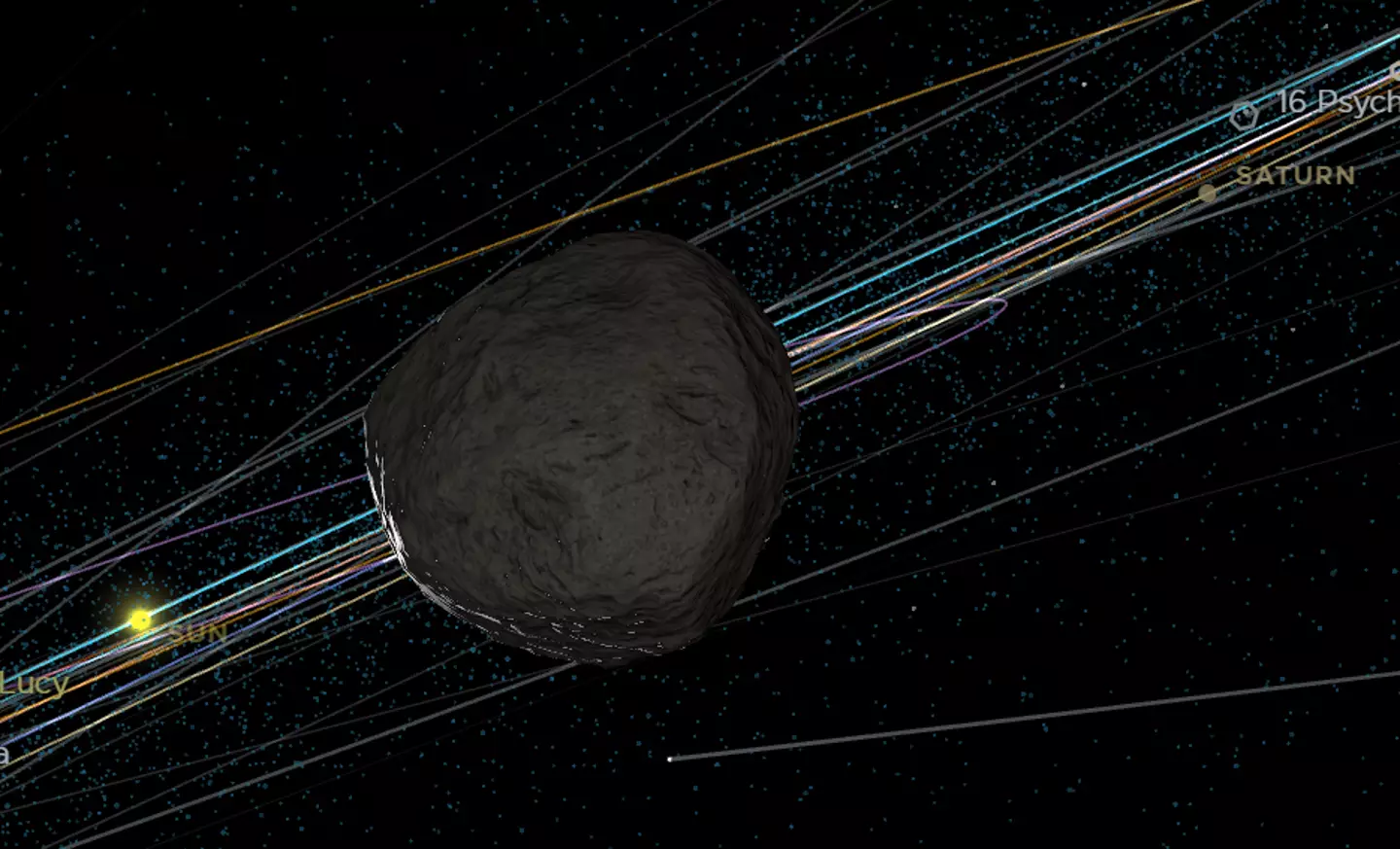
Here it comes… (NASA)
He and a team of experts from around the world created a computer model of the ‘God of Chaos’, modelling it after other asteroids we know about, and simulated what would happen to it as it hurtled past Earth.
It seems that our planet’s gravity could cause quakes on the asteroid that pick up boulders and slam them back down onto the surface again, creating new patterns and potentially breaking up old ones to make a smoother surface.
Ballouz told Live Science: “Apophis’ gravity is about 250,000 times smaller than Earth’s. So, we think that events of much smaller magnitude could plausibly shake things up on its surface.”
Coming close to our planet may also cause the ancient asteroid to spin differently, as the speed of its rotation might be affected by our planet’s gravity as well.
What would happen if the ‘God of Chaos’ asteroid did hit Earth?
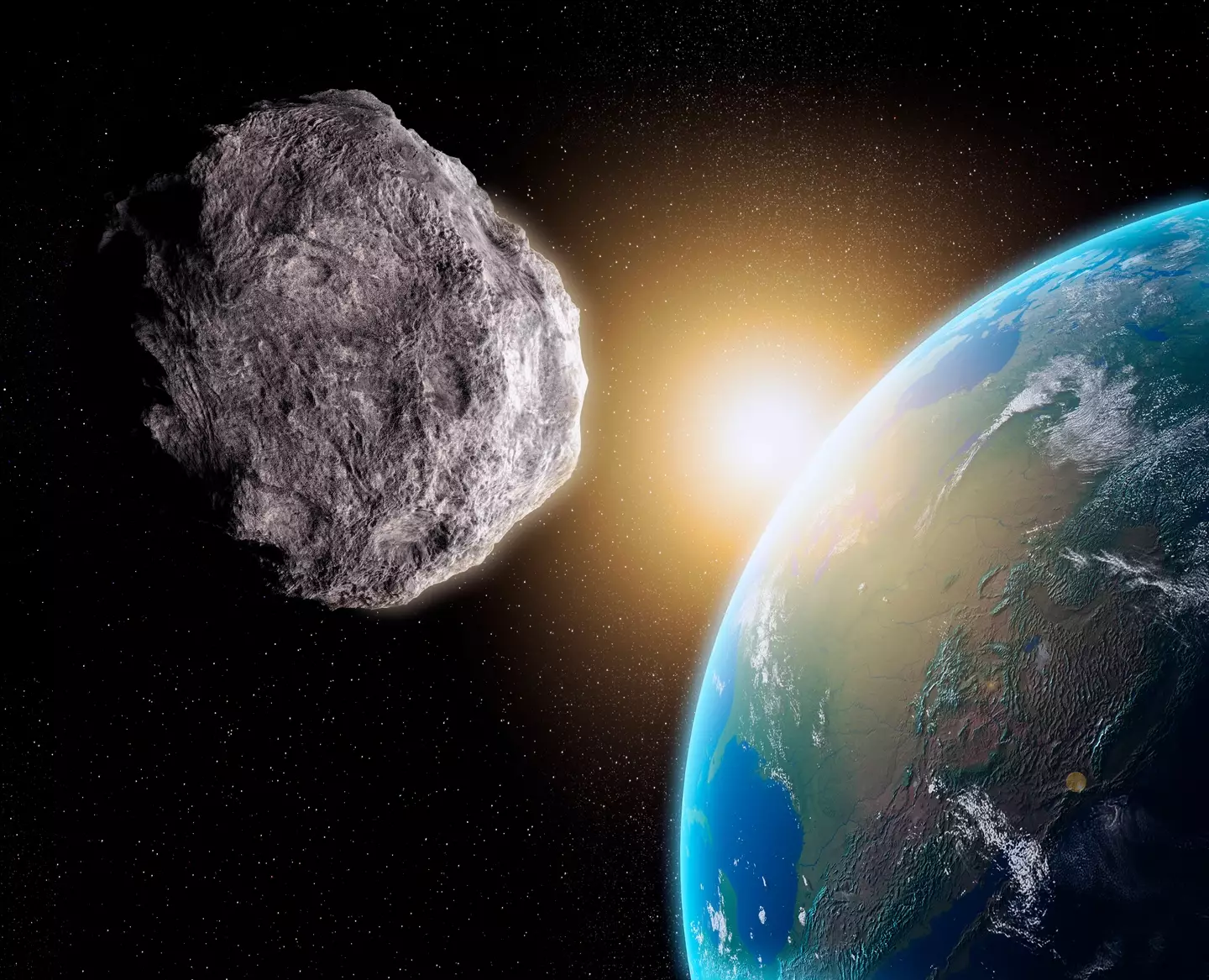
It’s still about four-and-a-half years away. (Getty Stock Photo)
First things first, it wouldn’t be a global extinction event that wiped humanity out on the scale of the dinosaurs.
According to The Planetary Society, given the size of the asteroid it’d cause ‘massive regional destruction’ and ruin the day of anyone living near the impact zone.
However, we wouldn’t be looking at the sort of global catastrophe that would ruin everyone else’s lives.
Even if it did hit Earth, which it very, very likely won’t, there’s a good chance it’d slam down into the sea and not come down inconveniently on a major centre of population.
April 2029 might seem ages away, but the time, like this big asteroid, will simply fly by.
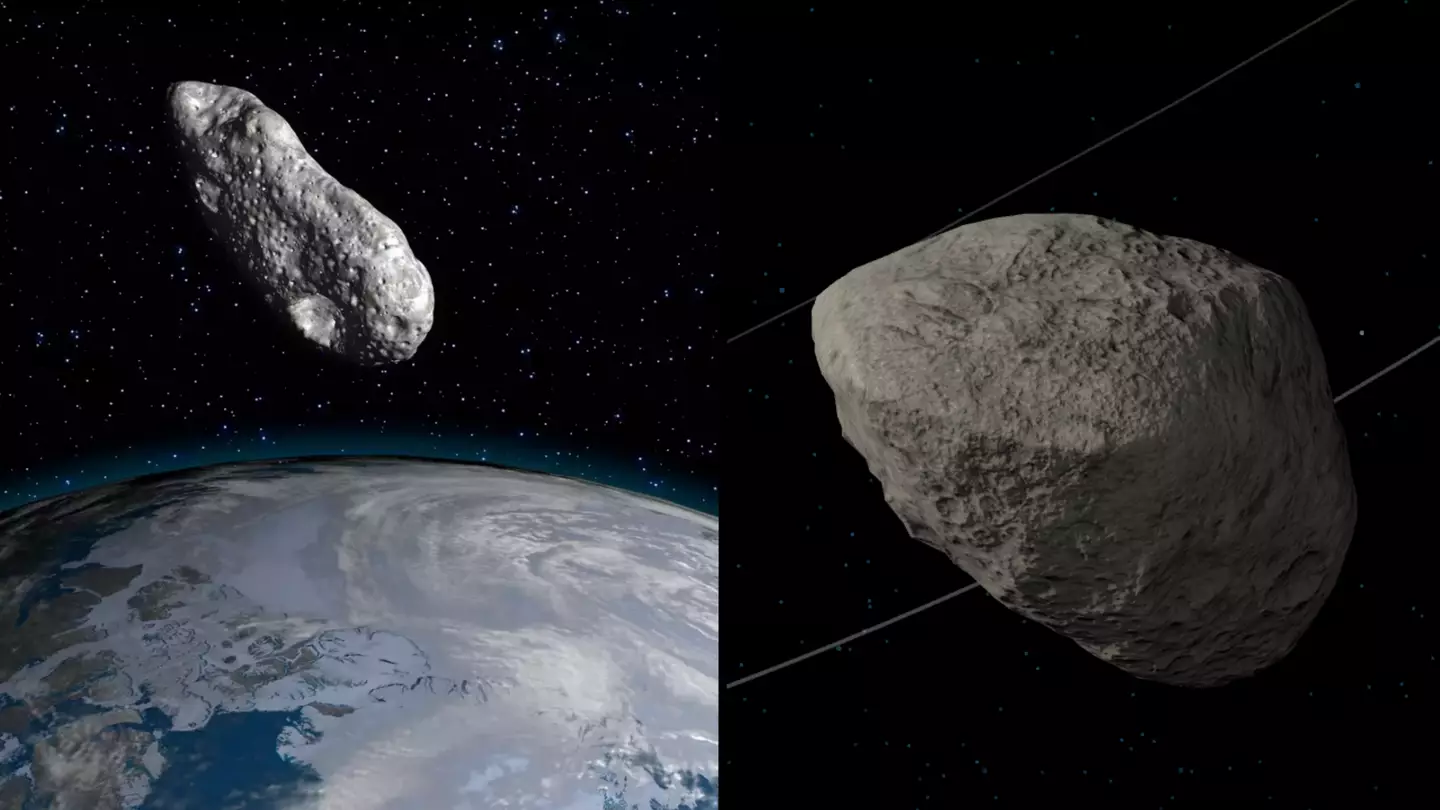
In all seriousness, 99942 Apophis, a massive 340-metre-wide asteroid that was named after the Egyptian God of chaos and destruction is in space, heading in our direction.
If it were to hit Earth, the impact is similar to 1,000 megatons of dynamite – but there’s been an update on its progress, or several, courtesy of NASA.
It was said earlier this year by scientists that the asteroid will pass by our planet harmlessly on 13 April 2029, at a distance about 40,000km from our blue planet, while being confident that we wouldn’t suffer a collision.
But that was earlier this year.
No, we’re not all heading towards certain death, but Apophis’ trajectory could be altered according to a new study that was published in The Planetary Science journal.
All it would take is an object as big as two-feet (0.6m), and it could start heading in a different direction, as Canadian astronomer Paul Wiegert and co-author Benjamin Hyatt looked into the odds of this happening.
If it were to hit one of these objects, it could push the asteroid towards our planet, set to hit it around the ‘keyholes’ of 2029.
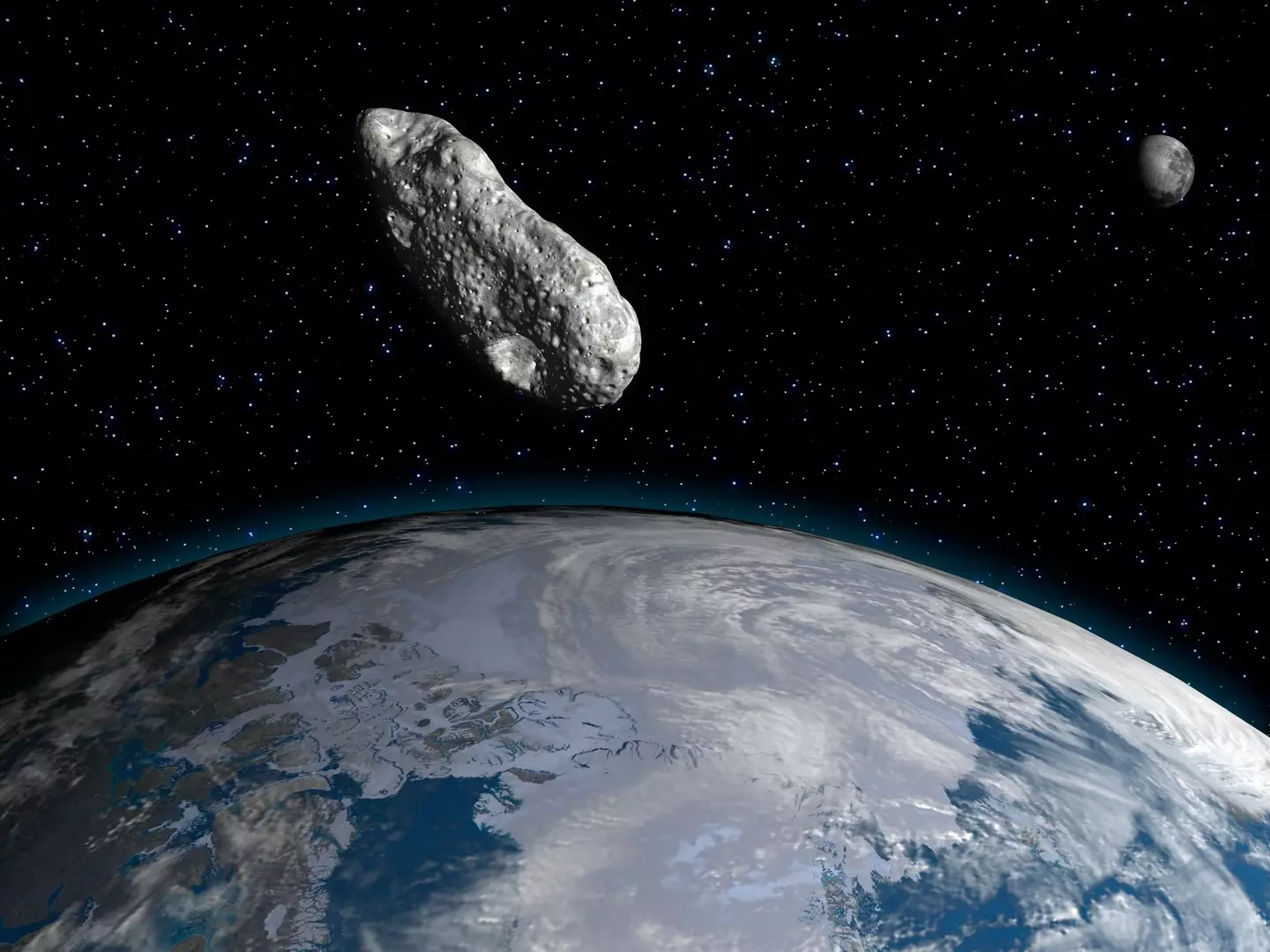
It might take just one object to send it hurtling towards us (JUAN GARTNER / Getty Stock Images)
However, before you start stockpiling and panicking, it’s worth noting that it could still collide with us at a later date (if at all), and for the ‘God of chaos’ to collide with us in 2029, it would need to hit something 3.4 metres in size.
Luckily, the odds of this happening are around 2.7 percent to be precise, so we can all breathe a sigh of relief.
But the asteroid is still on course to fly past us if all goes to plan, and if you’re interested in keeping up with its journey and its potential change of course, you can monitor it on NASA’s official website.
When discovered in 2004, it was identified as one of the most hazardous asteroids that could impact Earth, but on the asteroid’s tracking page, it states: “A radar observation campaign in March 2021, combined with precise orbit analysis, allowed astronomers to conclude that there is no risk of Apophis impacting our planet for at least a century.”
Though it is worth noting that the new study was only published on 26 August.
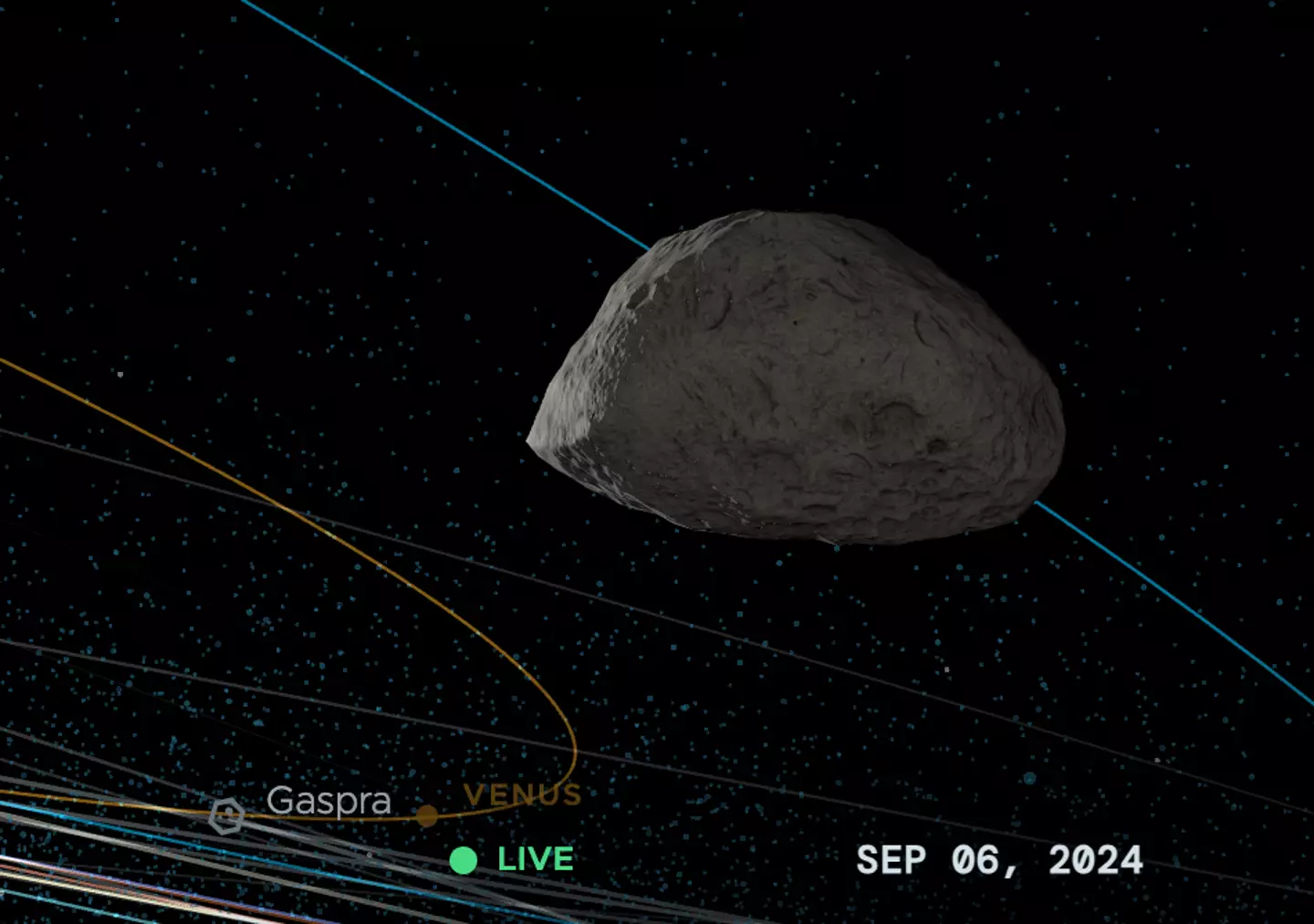
You can track the asteroid on the official NASA website, along with other discovered asteroids (NASA)
Astronomer Wiegert explained: “The odds of an unseen small asteroid deflecting Apophis enough to direct it into a collision with Earth in 2029 are approximately 10-8.
“Given that only 5 percent of such impulses are in the correct direction to generate an Earth impact, the overall probability of a small impact directing Apophis into a collision with the Earth is less than one in two billion.”
While this is all good news, he did also issue somewhat of an ominous warning.
“An additional element of the story is that Apophis has been largely unmonitored by telescopes since May 2021 and will remain so through 2027,” Wiegert continued.
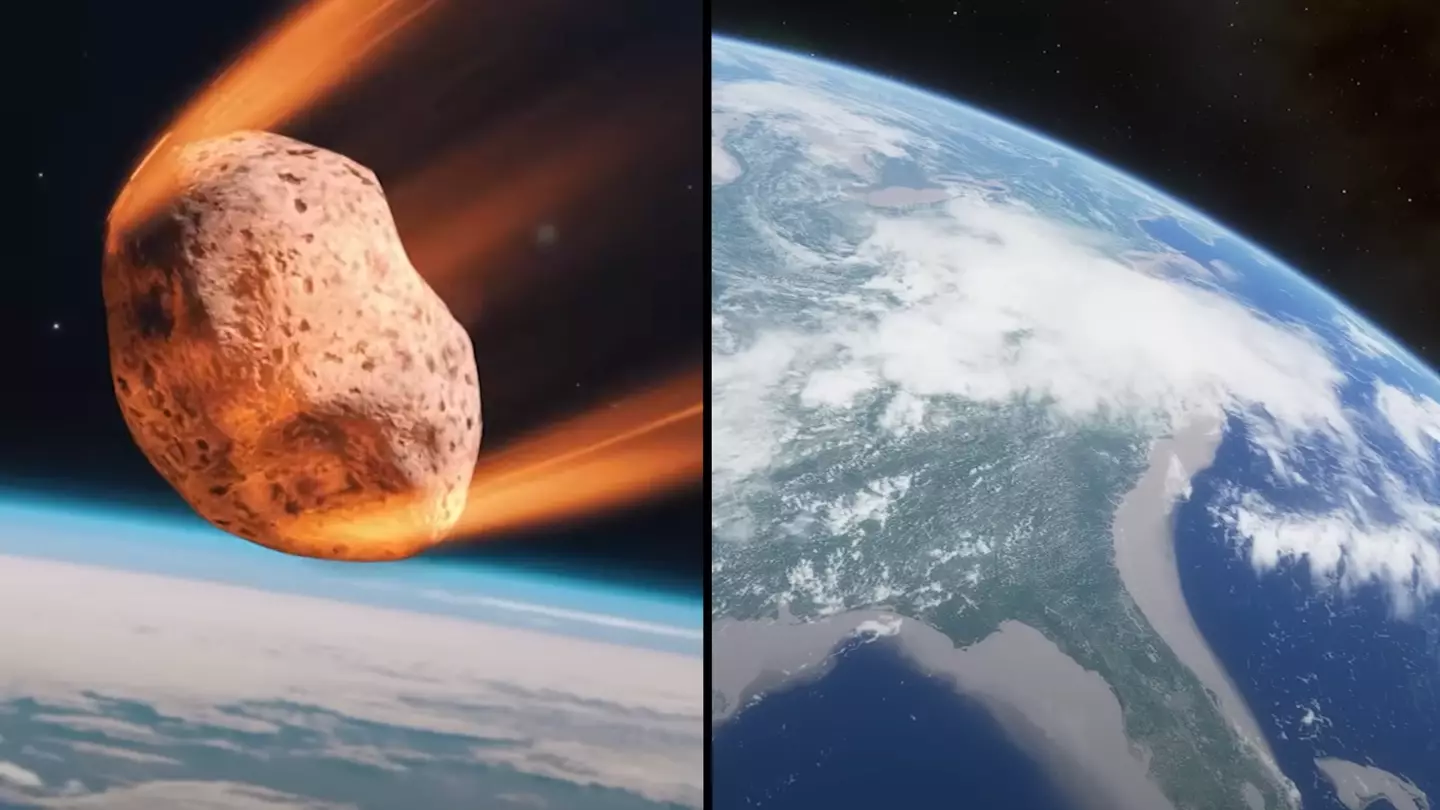
99942 Apophis – also known as the ‘God of Chaos’ – is a peanut-shaped asteroid measuring a whopping 340 metres wide.
On 13 April, 2029, Apophis is set to pass by Earth within an estimated 20,000 miles (32,000 kilometres) of its surface.
It will pass over the Atlantic Ocean, travelling so quickly that it will take less than an hour to cross.
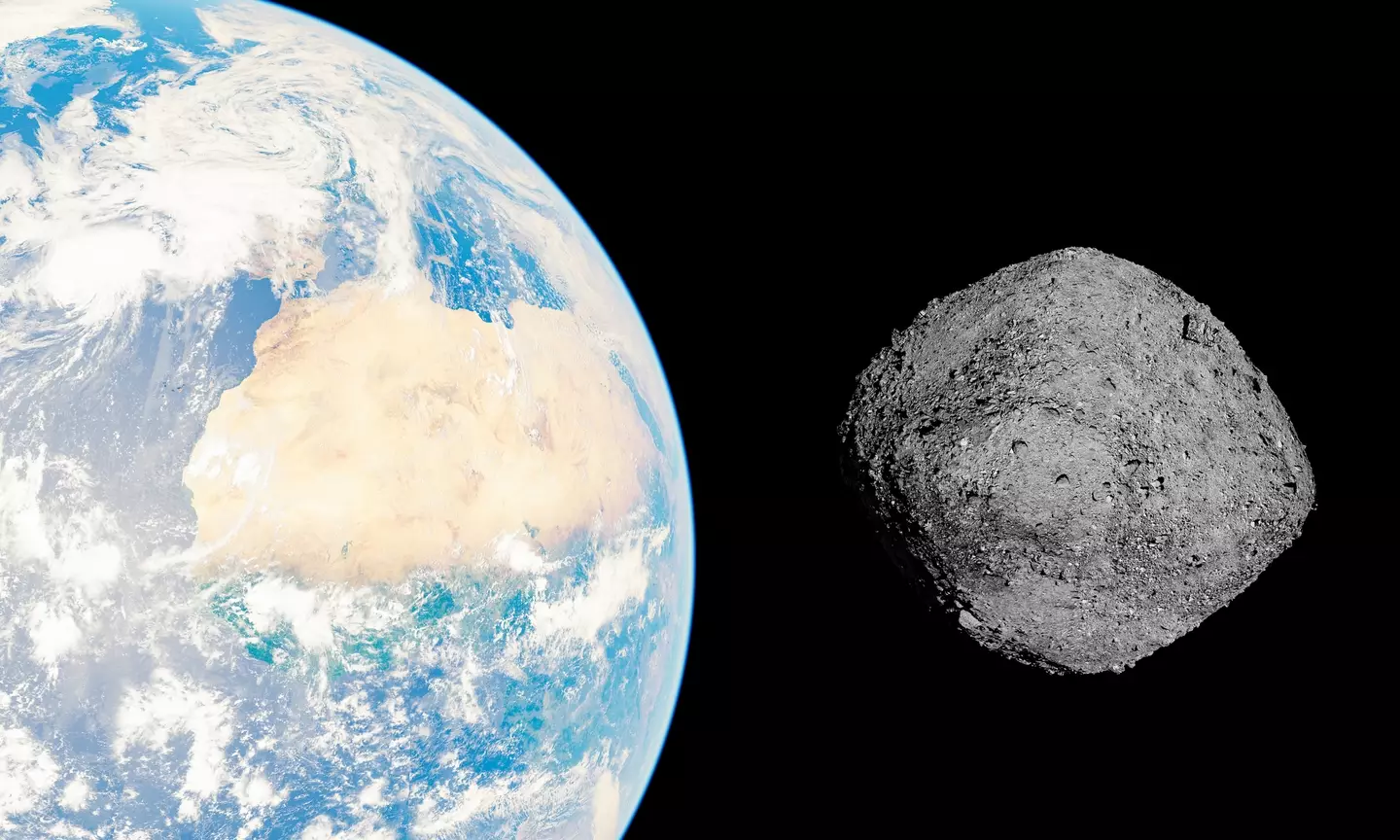
The asteroid is not expected to hit Earth (Getty Stock Image)
Now, it’s important to note that the asteroid isn’t expected to hit Earth, but a recent study has found that another object – which is 0.6 metres in length – could change this, although it’s unlikely.
Canadian astronomer Paul Wiegert and co-author Benjamin Hyatt looked into the odds of the asteroid colliding with another object, which essentially could cause it to hurtle towards our planet.
The study, published in The Planetary Science, found that the object could be enough to throw the asteroid off course, if it reached 3.4 metres in size.
And if this happens, it could collide with our planet at a later date.
Fortunately for us, the scientists say that the odds of this happening are ‘exceptionally low’ at around 2.7 percent.
How bad would it be?
Well, according to digital platform Cosmoknowledge, although Apophis wouldn’t be ‘a planet killer’ it ‘would ruin our day if it made contact’.
A simulation reveals that if it was to hit Earth, it would impact the planet with a kinetic energy equivalent to ‘1,000 mega tonnes of TNT, or tens to hundreds of nuclear weapons’.
It would not cause a threat to humanity as a whole, but it would cause ‘billions’ of deaths, as well as severe climate disruption.
“We would have to get out of the way if we could not stop it or change its trajectory,” they explain.
“A project of that magnitude would necessitate global cooperation as millions of people would become the first space refugees.
“Depending on the size, density, speed and angle of approach of the asteroid, such an evacuation may not be possible.”
In a statement, the space agency said: “The intrigue of Apophis is its exceptionally close approach of our planet on April 13, 2029.
“Although Apophis will not hit Earth during this encounter or in the foreseeable future, the pass in 2029 will bring the asteroid within 20,000 miles (32,000 kilometres) of the surface – closer than some satellites, and close enough that it could be visible to the naked eye in the Eastern Hemisphere.
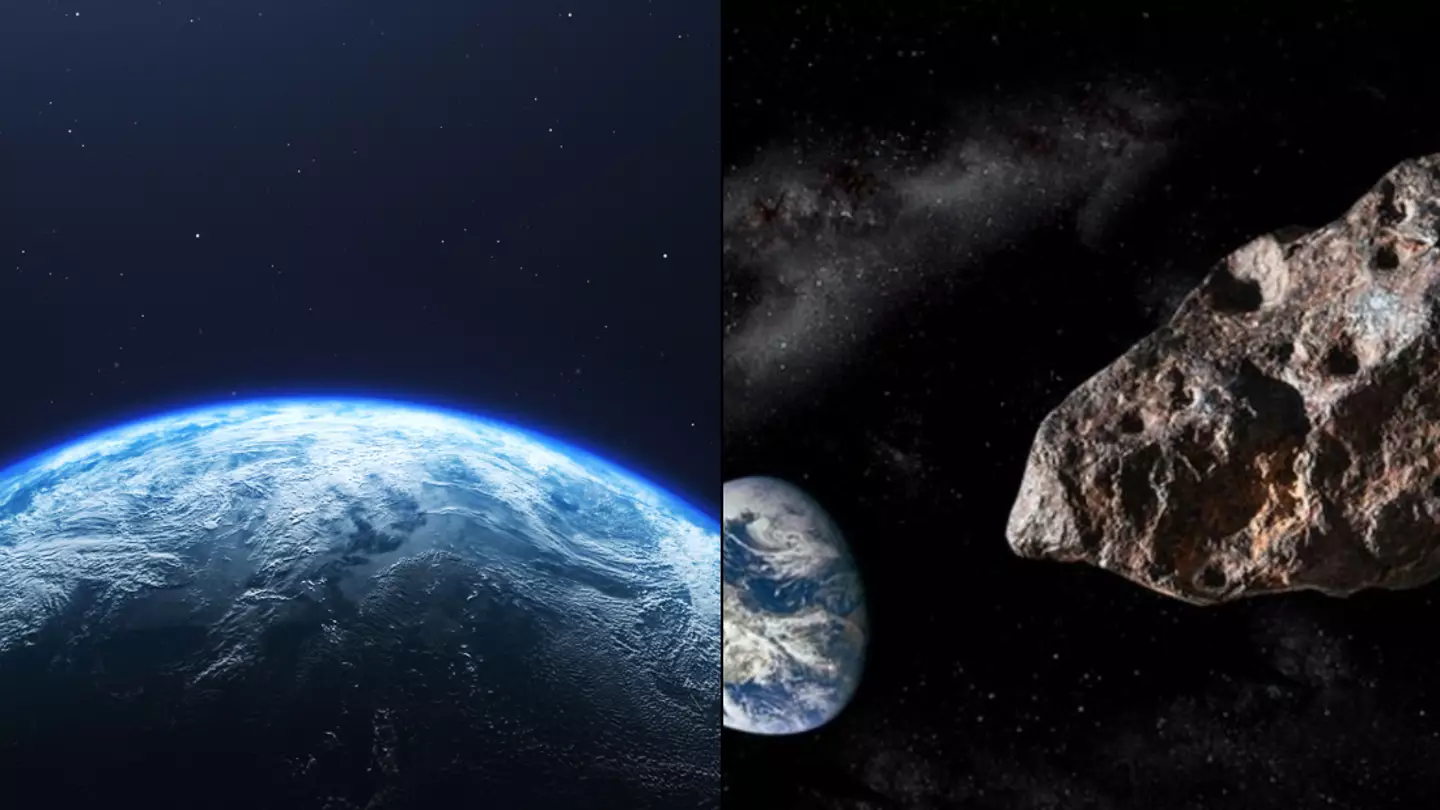
There’s a giant asteroid called the ‘God of Chaos’ that could be heading towards Earth and experts worry the odds of it actually hitting us are higher that previously thought.
99942 Apophis is a massive 340-metre-wide asteroid named after the Egyptian god of chaos and destruction, Apophis.
With that in mind, if it struck Earth, the consequences would be pretty devastating.
In fact, it’s thought that the asteroid’s impact would be equivalent to 1,000 megatons of TNT.
Earlier this year, scientists shared that the asteroid is expected to pass us by on 13 April, 2029 – coming within 40,000 kilometres of our planet – but they were confident that there wouldn’t be a collision.
This has since changed.
While Apophis’ current trajectory isn’t set to crash into Earth, a new study – published in The Planetary Science journal – has found that an object as small as two-feet could change this.
Canadian astronomer Paul Wiegert and co-author Benjamin Hyatt looked into the odds of the asteroid colliding with another object causing it to hurtle our way – and it’s not exactly great news.
They found that a relatively small object of around 0.6 metres (two-feet) could be enough to push the asteroid into one of the 2029 ‘keyhole’ trajectories around Earth. This could then lead it to collide with our planet at a later date.
For ‘god of chaos’ to hit Earth in 2029, the object it collided with would have to be around 3.4 metres in size – an object slightly larger than a grand piano.
Fortunately, the odds of this happening in 2029 are ‘exceptionally low’ (around 2.7 percent, to be precise).
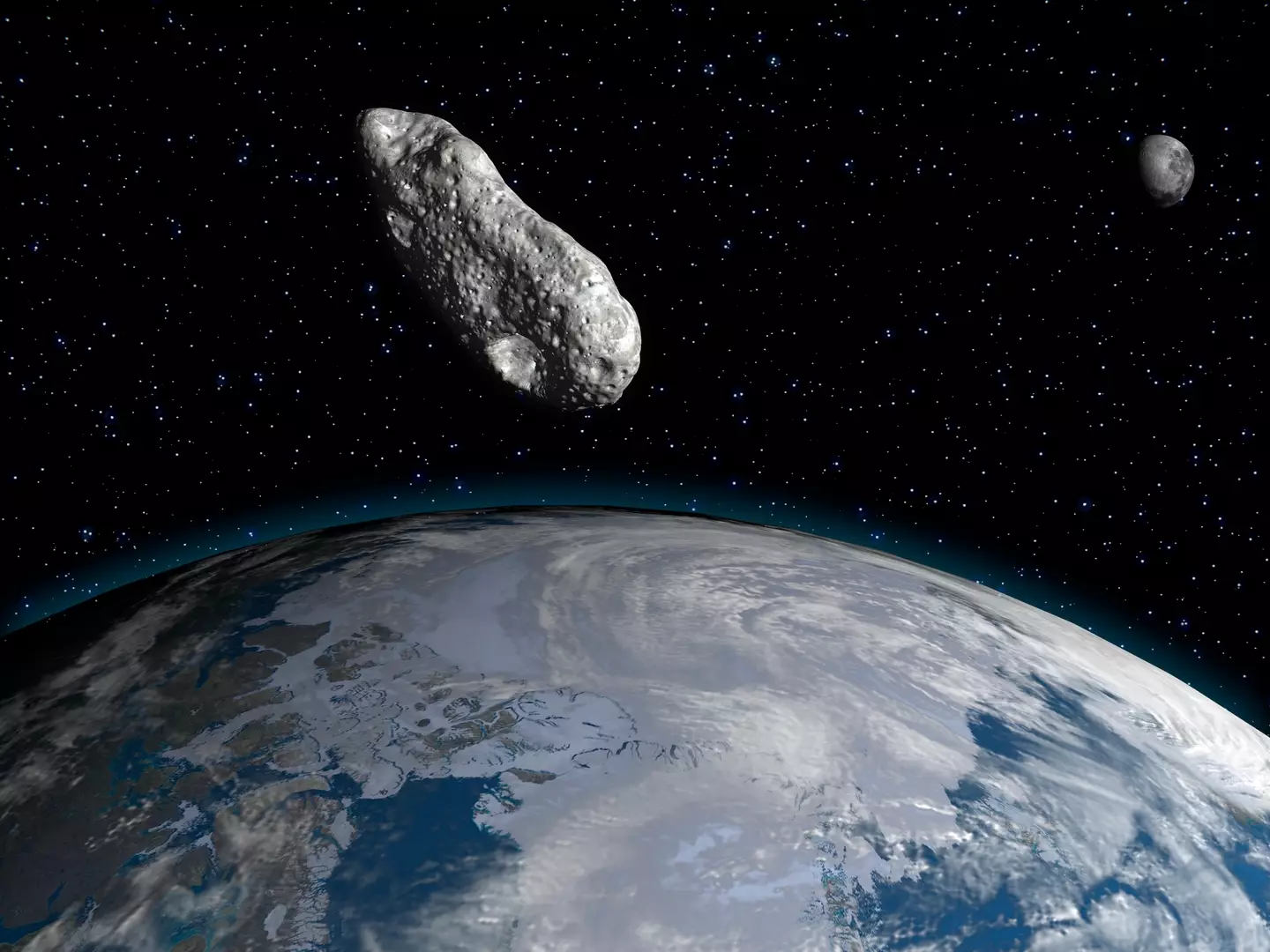
An object as small as two-feet wide could send the ‘god of chaos’ asteroid hurtling towards Earth (Getty Stock Image)
Wiegert explained: “The odds of an unseen small asteroid deflecting Apophis enough to direct it into a collision with Earth in 2029 are approximately 10-8.
“Given that only 5 percent of such impulses are in the correct direction to generate an Earth impact, the overall probability of a small impact directing Apophis into a collision with the Earth is less than one in two billion.”
While this is all good news, he did also issue somewhat of an ominous warning.
“An additional element of the story is that Apophis has been largely unmonitored by telescopes since May 2021 and will remain so through 2027,” Wiegert continued.
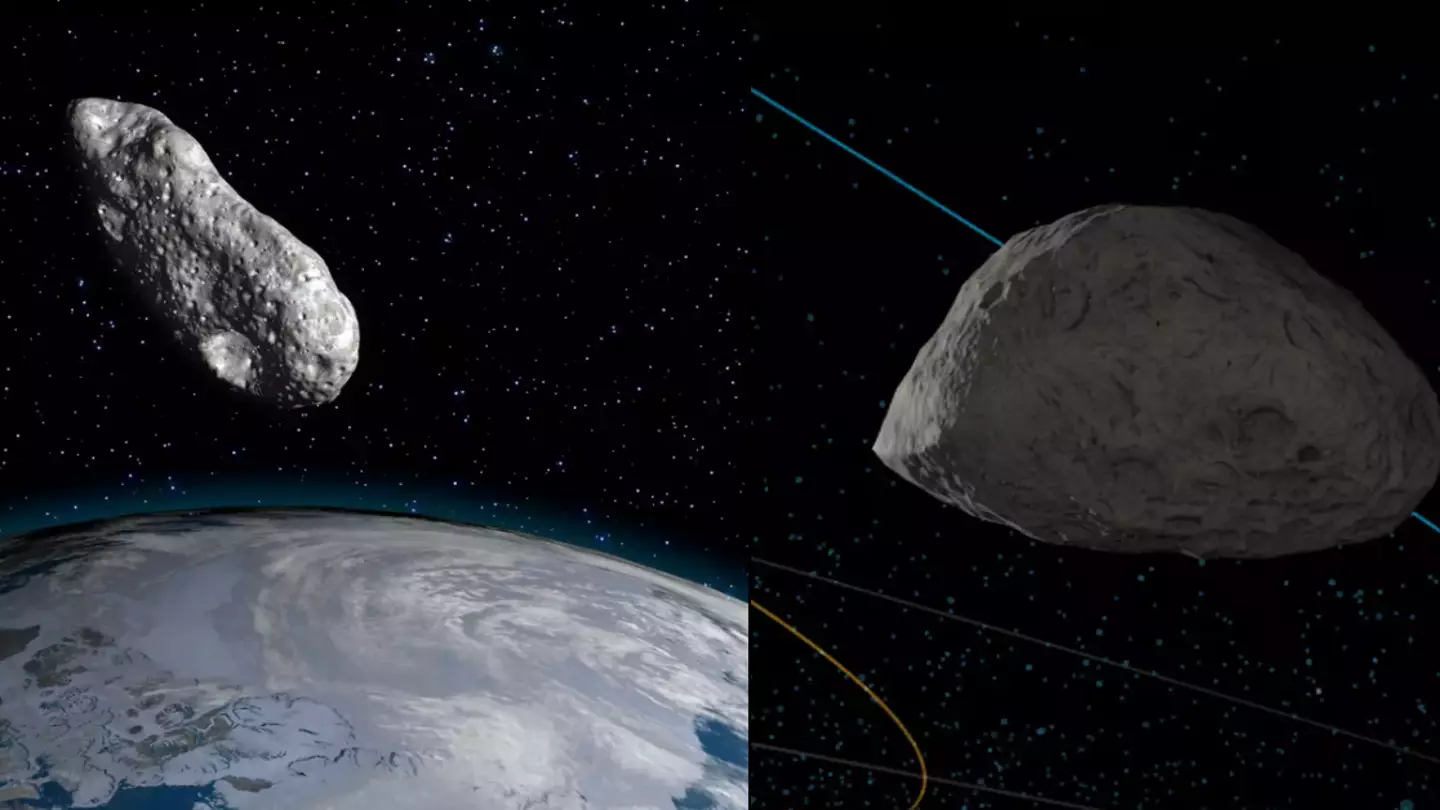
99942 Apophis – also known as the God of Chaos – is a peanut-shaped asteroid measuring a whopping 340 metres wide.
On 13 April 2029, Apophis is set to pass by Earth within an estimated 20,000 miles (32,000 kilometres) of its surface.
But scientists have differing opinions as to what the chances are it could actually hit us.
While Apophis’ current trajectory isn’t set to crash into Earth, a study – published last month in The Planetary Science journal – has found that an object as small as two-feet could change this.
Canadian astronomer Paul Wiegert and co-author Benjamin Hyatt looked into the odds of the asteroid colliding with another object causing it to hurtle our way.
They found that a relatively small object of around 0.6 metres (two-feet) could be enough to shift the asteroid’s trajectories, leading it to collide with our planet at a later date.
And, for ‘God of chaos’ to hit Earth in 2029, the object it collided with would have to be around 3.4 metres in size.
Fortunately for us, the scientists say that the odds of this happening are ‘exceptionally low’ (around 2.7 percent, to be precise).
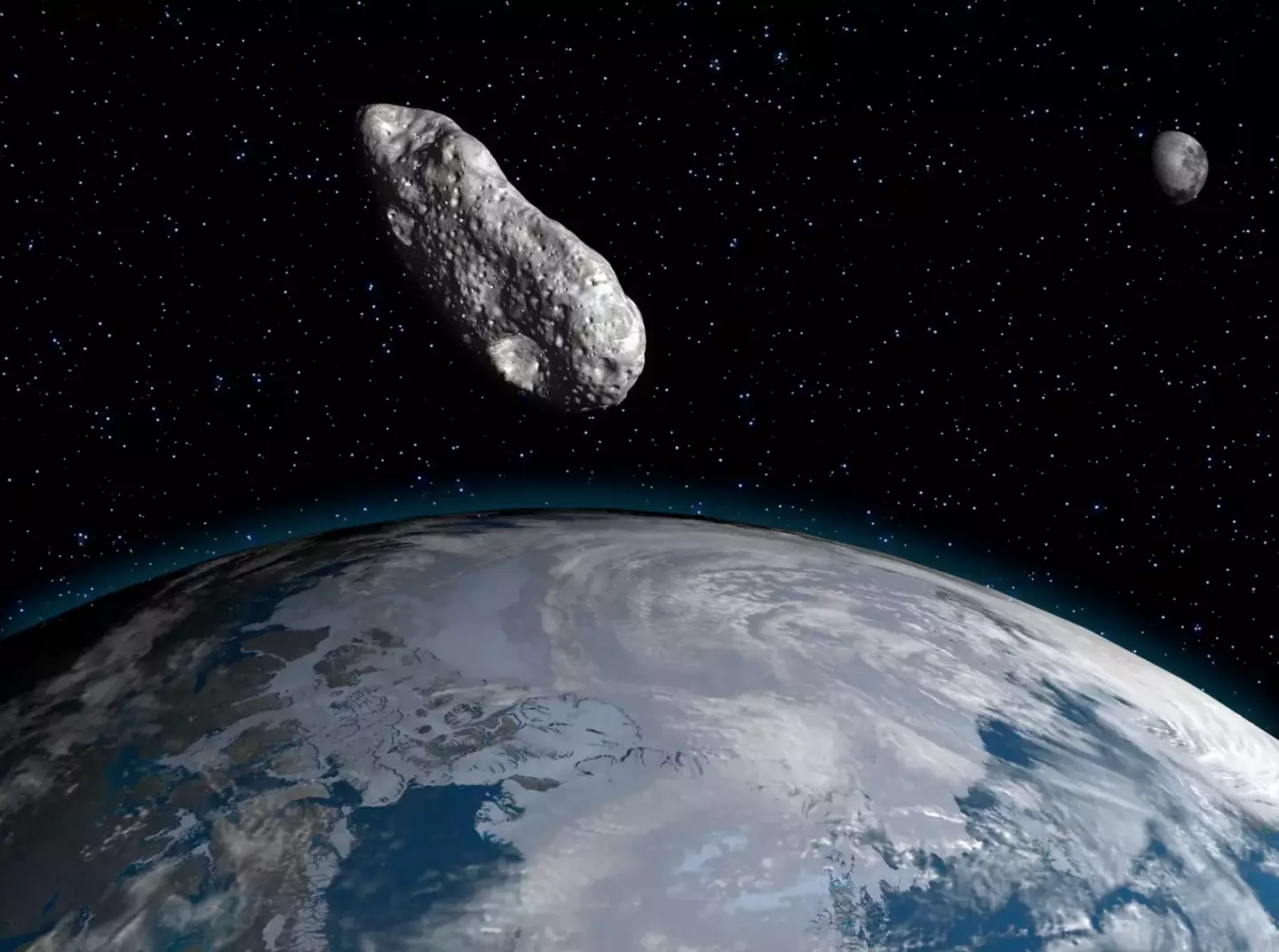
An asteroid named the ‘God of Chaos’ is set to get closer to Earth than some satellites in 2029 (Getty Stock Images)
Wiegert explained: “The odds of an unseen small asteroid deflecting Apophis enough to direct it into a collision with Earth in 2029 are approximately 10-8.
“Given that only 5 percent of such impulses are in the correct direction to generate an Earth impact, the overall probability of a small impact directing Apophis into a collision with the Earth is less than one in two billion.”
However, NASA have weighed in on the potential event following investigations into the asteroid last year.
In a statement, they said: “The intrigue of Apophis is its exceptionally close approach of our planet on April 13, 2029.
“Although Apophis will not hit Earth during this encounter or in the foreseeable future, the pass in 2029 will bring the asteroid within 20,000 miles (32,000 kilometres) of the surface – closer than some satellites, and close enough that it could be visible to the naked eye in the Eastern Hemisphere.
Featured Image Credit: Getty Stock Image/NASA


